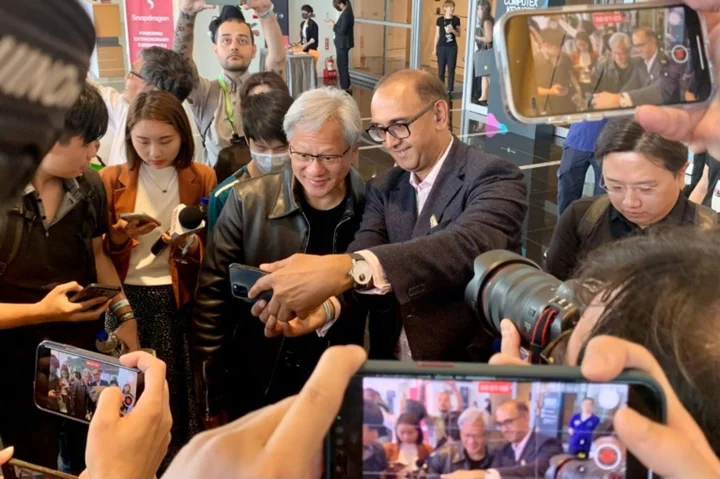
Nvidia, the world's newest, AI-amped tech giant
Nvidia, a chip technology company, became a trillion dollar enterprise this week and the world’s newest tech giant. Here are a few key...
2023-06-01 01:18

Nintendo Download: A Night Market To Remember
REDMOND, Wash.--(BUSINESS WIRE)--Sep 21, 2023--
2023-09-21 21:23

Q4 Inc. Launches Earnings Lifecycle on Q4 Platform
TORONTO--(BUSINESS WIRE)--May 23, 2023--
2023-05-23 20:27

xQc and IShowSpeed cross paths for first time, psyched fans compare it to Messi and Ronaldo meet: ‘2 GOATs of streaming’
At the 2023 Streamy Awards, xQc and IShowSpeed crossed paths for the first time captivating fans with their meeting
2023-08-30 15:51

Defense Derby Releases First Update, Introduces New Plaguemancer Unit
SEOUL, South Korea--(BUSINESS WIRE)--Sep 3, 2023--
2023-09-04 09:50

Who is Kay Adams? Paige Spiranac and sportscaster consider fan suggestion to go on golfing date, Internet says 'the world rejoices'
A recent Twitter interaction between Paige Spiranac and Kay Adams caused a significant stir online
2023-08-09 18:23
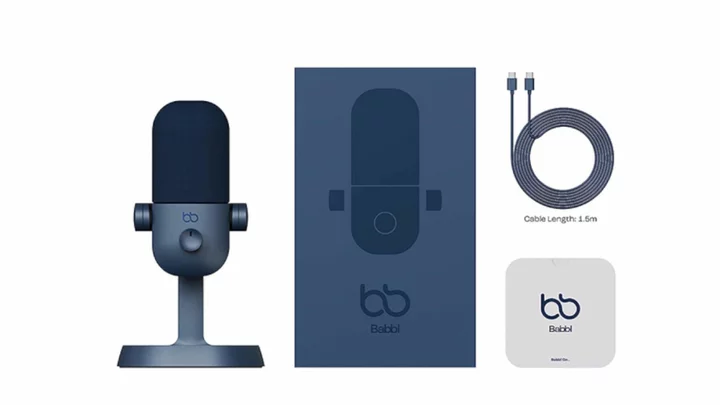
Save $35 off this USB Cardioid Microphone During our Labor Day Sale
Starting a podcast or a vlog? Then you’ll first need a good quality microphone. And
2023-09-01 20:25
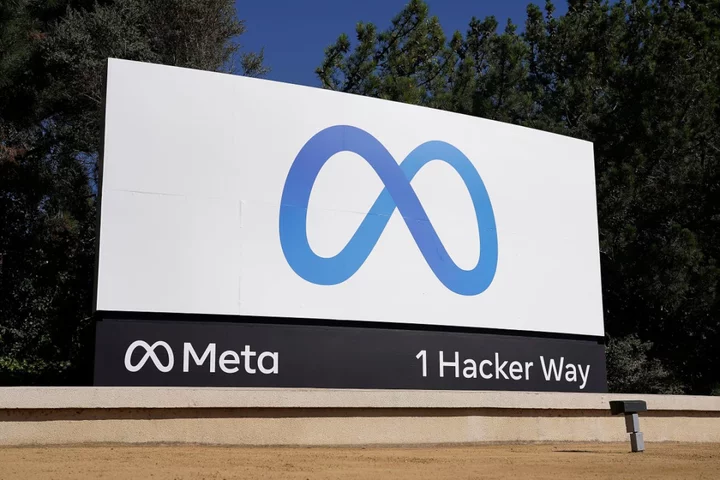
Meta reveals new ‘Voicebox’ AI that is too risky to release
Meta has created a new system that it says can generate convincing speech in a variety of styles – but will not release it for fear of the risks. The new tool is called “Voicebox” and can be set to create outputs in different styles, new voices from scratch as well as with a sample. It makes speech across six languages, as well as a variety of other tools such as noise removal. It says that it is a major development on previous speech systems that required specific training for each task. Instead, Voicebox can just be given raw audio and a transcription, and then be used to modify an audio sample. It is far more effective than its competitors, Meta claimed in its announcement. It can generate words with a 5.9 per cent error rate compared to 1.9 per cent from competitor Vall-E, for instance, and do so as much as 20 times more quickly. Meta said that it had been built on the foundation of a new model it called “Flow Matching”. That allows the system to learn from speech that has not been carefully labelled, so that it can be trained on more and more diverse data. Voicebox was trained on 50,000 hours of speech and transcripts that came from public domain audiobooks in English, French, Spanish, German, Polish, and Portuguese, Meta said. Now that it has been trained, it can be given an audio recording and fill in the speech from the context, Meta said. That could be used to create a realistic sounding voice from just two seconds of speech, for instance, potentially being used to bring voices to people who cannot speak or to add people’s voices into games. It could also be used to translate a passage of speech from one lanagueg to another in a way that keeps the style, Meta said, allowing people to talk to each other authentically even if they don’t speak the same language. It could also be useful in more technical scenarios, such as audio editing, where it can be used to replace words that were not properly recorded, for instance. But Meta said that the risks were such that it would not be releasing the model. It did not point to specific harms, but said that “as with other powerful new AI innovations, we recognize that this technology brings the potential for misuse and unintended harm”. Numerous reports have warned that such systems could be used to copy people’s voices without their consent and in ways that could be harmful, such as creating fake videos of news events or using people’s voices to pose as them during scam calls, for instance. “There are many exciting use cases for generative speech models, but because of the potential risks of misuse, we are not making the Voicebox model or code publicly available at this time,” Meta said in a statement. “While we believe it is important to be open with the AI community and to share our research to advance the state of the art in AI, it’s also necessary to strike the right balance between openness with responsibility.” It also pointed to a separate paper, published on its website, in which it detailed how it had built a “highly effective” system that can distinguish between authentic speech and audio that had been generated with Voicebox. Read More Mark Zuckerberg reveals what he thinks about Apple’s headset – and it’s not good Meta scrambles to fix Instagram algorithm connecting ‘vast paedophile network’ Reddit user’s protests against the site’s rules have taken an even more bizarre turn
2023-06-20 01:46

India’s Moon lander just detected movement below the lunar surface
India’s Vikram lunar lander has recorded movement below the surface of the Moon – but it’s probably not aliens. Experts think the movement is seismic activity – the lunar equivalent of earthquakes. It is the first time humans have detected the so-called moonquakes since the 1970s. The new activity was recorded by the Vikram lander’s onboard instrument for lunar seismic activity, a piece of kit designed “to measure ground vibrations generated by natural quakes, impacts, and artificial events,” the Indian Space Research Organization (ISRO) said. India’s Chandrayaan-3 mission saw it land the Vikram and its sister craft, the Pragyan rover, last month, becoming the first nation to land near the Moon’s little-explored South Pole. It also makes India just the fourth nation to land on the Moon, alongside the US, the former USSR and China. The seismic activity is the first recorded since the US Apollo programme, which ended in 1977. Those recordings yielded valuable data about the Moon’s makeup. Scientists have been able to theorise that the Moon has an inner core which is much less dense than the Earth’s and which is about 500km across. On Earth, seismic activity is caused by the shifting of the planet’s tectonic plates. But on the Moon, things are a bit different. The quake could be caused by thermal activity from the Sun, or by tidal stresses caused by Earth’s gravity, cracking the planet and causing the pieces to rub together. The team noted that the event is currently under investigation. Sign up to our free Indy100 weekly newsletter Have your say in our news democracy. Click the upvote icon at the top of the page to help raise this article through the indy100 rankings.
2023-09-07 19:20

Brevo Review
Brevo (formerly Sendinblue) is a robust email marketing solution designed for small and medium-sized businesses
2023-08-16 23:50

Chandrayaan-3 rover rolls onto moon's surface as ecstatic India celebrates
By YP Rajesh, Sakshi Dayal NEW DELHI (Reuters) -The moon rover of India's Chandrayaan-3 exited the spacecraft on Thursday to
2023-08-24 17:26

Electric Power Systems Selected as Electric Aviation Battery Provider for Elfly’s Cutting-Edge Research Seaplane Demonstrator
OSHKOSH, Wis.--(BUSINESS WIRE)--Jul 25, 2023--
2023-07-25 22:24
You Might Like...
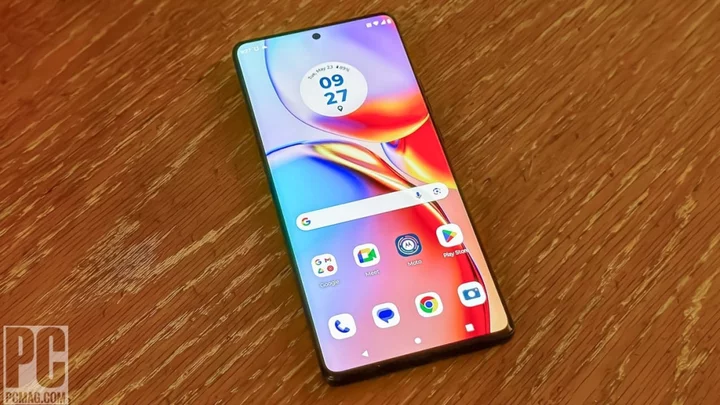
Motorola Moto Edge+ (2023) Review

Digital banking in Italy's industrial heartland at over 75% - BOI

Experts have pinpointed exactly when society will collapse

Do Andrew Tate and Tristan Tate own 21M Bitcoin? Truth about Tate brothers' cryptocurrency worth $400M revealed

Apex Legends Players Want More "Wacky Stupid Modes"
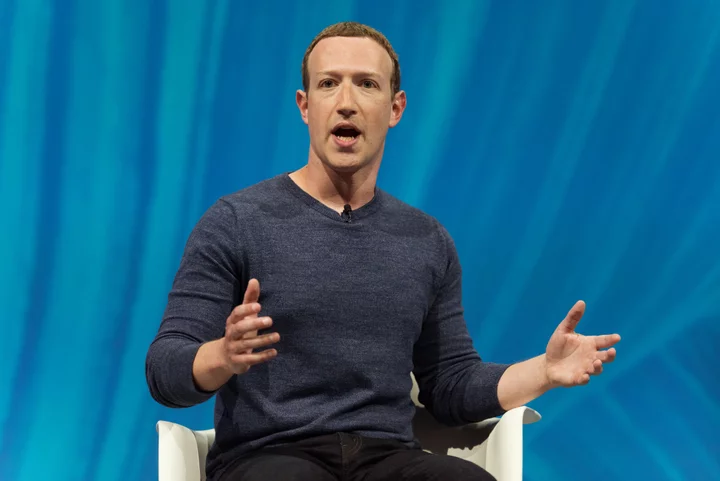
Here's how Meta's Mark Zuckerberg reacted to Apple's Vision Pro

AI is already linked to layoffs in a surprising industry

IShowSpeed shares 'unlucky' experience after Sidemen Charity Match, Internet says 'he admits he's s**t'
